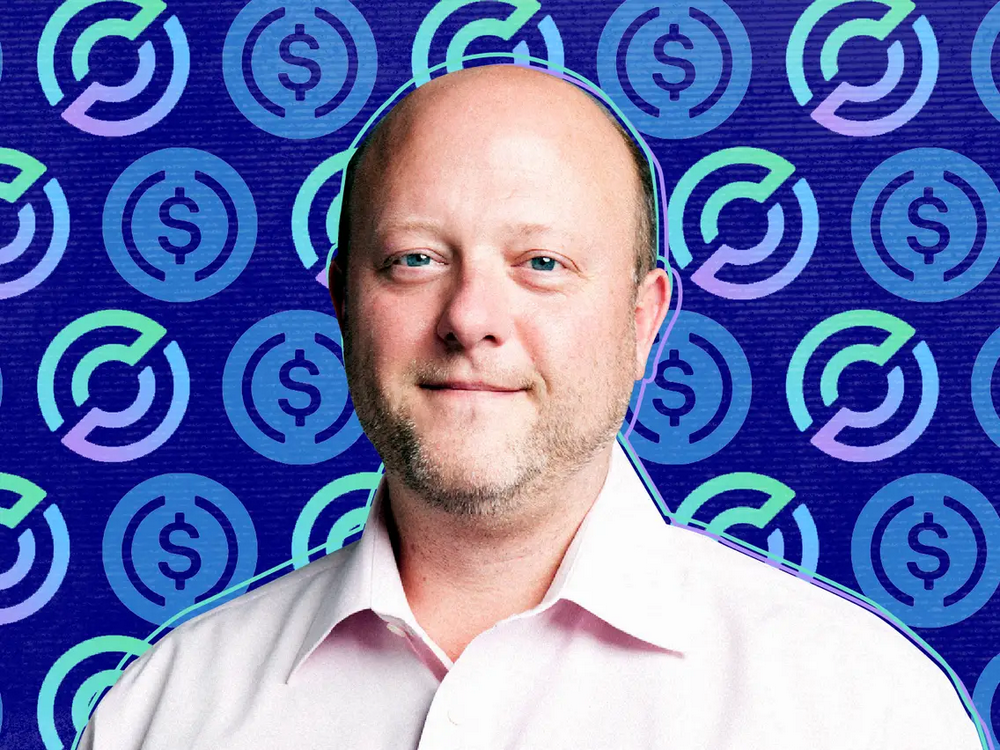Bitcoin in the eyes of a US Navy: Controlling the commons means controlling business, and the digital world is a larger commonplace than the high seas.
This article is from a personal blog of the US Navy. He wants to talk to us about "automatic rifle economics" – Bitcoin is like the AK-47 in the digital high seas, which makes everyone a distributed violent machine.
As a memory of the soldiers, there is a picture that I have never forgotten. It was on a $1 billion warship. I stood in the command center and quietly watched a Somali pirate urinating in the infrared field.
It was around 4 am, I was drinking coffee in the dark command room, and there were only dozens of radar screens shimmering around. I counted how many sleeping associates around him while drinking coffee. Before dawn, my teammates need to kill all of them.
- The new indicator SOPR tells you that the bull market may have begun.
- [Stability Currency Analysis and Analysis] Market Performance, Transparency and Regulatory Analysis of USDT, PAX, USDC and TUSD
- Towards programmability, these five agreements should be part of the securities clearing platform
Through high-tech armed command, the US Navy can control almost at sea, undersea, sea level, or any area related to the sea. As a surface combat officer, my main job is to take care of the daily maintenance of US hegemony and to ensure that our free trade and capitalist forces dominate the global economy. The closest competitor to the United States is China, but in this respect they are at least behind us for decades.
Despite this, in Iraq and Afghanistan, three thousand kilometers away from Somalia, the Americans’ faces are not very good. Whether it is Iraq or Afghanistan, these countries are full of low-tech violence – I call it “distributed violence” – because my brothers need to face a group of handheld AK-47 submachine guns. The enemy is armed with an improvised explosive device (earth bomb). The United States forgot the lessons of Vietnam and then re-paid tuition on the streets of Fallujah.
For those readers who don't understand the military, I want to tell you that unlike the general perception in society, the Navy is actually the highest practical education that integrates global economics, distributed systems and high-risk game theory. The most important lesson I learned from it is that civilization is shaped by the power to master business. Today, this power is the aircraft carrier strike group. Tomorrow, it is a bitcoin node.
1
fleet
All the stories you hear about the Navy are true. The navy likes to go drinking when they are at the port, and we are not picky about the type of wine. However, when I first landed, I began to prefer the taste of Newcastle. This is mainly due to my teammates. In every port from Bahrain to Hong Kong, they always find an English pub.
From an English pub to another English pub, sometimes I suddenly realize that I am actually following the steps of the Royal British Navy over centuries. They were the hegemons everywhere in the world, no matter where they went, so they also had these English bars scattered around. But the British cooking is really not good, but fortunately we spent most of the night in McDonald's. After 10,000 years, these restaurant menus may become archaeologists' "Rosetta Stone", a secret to unlocking the 21st century.
The British do bars and the Americans make burgers. It's no accident that you can easily find these two things in every major port in the world. For centuries, ships flying over the British flag have shaped this small island into an image of the entire world. They are not the first people to succeed. Earlier, the Spanish sailing ship not only ensured the safe navigation of Catholic missionaries to the Americas, but also guaranteed the safe return of Aztec gold coins and treasures. They are the same as yesterday's Britain and today's America. The reason is simple – controlling the commons means controlling the business, there is no bigger common land than the high seas.
The power of the navy is reflected in its connection to trade. An ordinary army can compete for and occupy important resources, but its control is limited by geographical factors. On the other hand, the fleet can establish a blockade, occupy a blocking point, and block smugglers around the world. With a long range of cannonballs, the fleet can project its power far away. In the calm sea, violence crosses the limits of time and space and has an infinite continuation. And when necessary, this kind of violence can also complete a low-cost retreat. The British used the fleet as a tool to build their own empire. McDonald's, Apple's mobile phone, Hollywood and other American-style capitalism are all products built on today's US aircraft carrier strike group.
2
pirate
At the other end of the world, Somali pirates were just a few disgruntled fishermen. The Somali government closed down in 1991, and the Coast Guard packed its bags and returned home, leaving the local rich fishery resources for the trawlers of foreign factories to fish at will. The stock fell sharply and the local economic system collapsed.
To this end, some local fishermen who are enterprising realize that although they do not have fish, they have a lot more guns. So they built a naval militia to detain the trawlers from foreign factories and ask them to pay for theft. As it turns out, the effect of this plan far exceeds expectations. More and more ransoms began to flood into their pockets, and the fishermen were completely transformed into pirates, and they expanded their business to include narrow commercial shipping lanes in Europe, Asia and the Middle East.
Most importantly, no one really cares what these pirates do.
The Gulf of Aden extends from the southern tip of the Red Sea to the Western Indian Ocean. It transports oil from the Persian Gulf and electronic equipment from Asia to the ports of the Black Sea, the Mediterranean Sea and the European Atlantic coast. The multi-million dollar pirate ransom is equivalent to a small amount of water in the ocean compared to a quarter of global trade. The voyage insurance premiums here have not changed even before the media reported the pirate story. After the pirate story came to the headlines, London Lloyd's Insurance Company realized that they could quickly make a profit from the public's attention to pirates.
Pirates are not the target of the US Navy. The US Navy is not built for small-scale operations. Pirates may get news coverage from the media, but the Pentagon is more concerned about Chinese submarines and Russian bombers.
3
Automatic rifle economics
The real problem arises when other terrorist organizations begin to take advantage of the collapse of Somalia. Al Shabbab, the Al-Qaida branch of East Africa, has established an anarchic position to put pressure on pirates to increase their income for Al Qaeda. A $10 million ransom may not make much sense for the global sea economy, but $10 million can buy a lot of guns for jihad.
Forget the nuclear weapon. The AK-47 (Kalashnikov automatic rifle) is the most important weapon of the 20th century. Even in the 21st century, there are no rivals that can compete with them. The AK-47 is rugged, user-friendly, and extremely lethal, killing you like a stealth bomber.
The reason is simple – personal death is just a fixed cost. Complex weapon systems are often expensive to build and difficult to operate. A bomb seems to cost only $25,000, but this does not include the aircraft carrying it (bombs), the large aircraft that fuels the aircraft, the pilots who fly the aircraft, the maintenance personnel who repair the aircraft, the human resources department that manages the training, These additional costs for the payroll and career development departments. This list of costs can continue to count. The US military is of course very strong in terms of ability, but they are not very flexible, and all transfers need to rely on the entire system.
In contrast, the AK-47 rifle is cheap, effective, and highly distributed. Any ordinary person can learn to operate AK-47 in one afternoon. Basic infantry tactics are not as complicated as rocket technology.
The significance of AK-47 for war is like the impact of the iPhone on computers. It represents a metaphor: the power that is more user-friendly will eventually be held in the hands of more people. This scalability allowed a group of farmer farmers and sheep herders to defeat the two most powerful forces in the world in the 1970s and 1980s. The war between Vietnam and Russia in Afghanistan has always been a classic research topic in the low-end violent armed war.
4
AK = RSA
When the conditions are right, "cheap" and "scalability" will defeat "large" and "centralized". The cryptographers Whitfield Defi and Martin Herman are another typical representative who brought the philosophy of Kalashnikov into the world of information warfare.
Before the advent of asymmetric cryptography, providing secure communication services to others was almost a bad business, and there were too many headaches.
The key management process for large organizations is often very complex and can only be used by large government agencies with strong security requirements, as only these organizations can afford the cost of secure communication services. This eliminates all potential users outside the military and intelligence departments. Moreover, even for large government agencies that can afford the cost, this secure communication service cannot guarantee absolute security. If you don't believe it, ask the Japanese general, Yamamoto, 56, to know –
(The Japanese military communication password was once famous for its complexity. It consisted of 10,000 five-digit digits. It was upgraded 12 times during the Pacific War. It seems to be unbreakable, but it is difficult to block the hundred secrets. After the attack on Pearl Harbor, Yamamoto decided. The sneak attack on Midway. However, the US military took out a codebook from the sunken Japanese submarine cabin, intercepting and deciphering the secrets of Yamamoto 56 in advance, and finally the United States did not win first.)
RSA has changed everything. A simple principle behind asymmetric cryptography is to find mathematical puzzles (such as a jigsaw puzzle) that are difficult to figure out but that are easy to test (using a jigsaw puzzle) and use these mathematical puzzles for encryption. This means that anyone with a computer can communicate securely at a negligible cost.
Of course, if you really want to, a motivated hacker can still crack your laptop. The easiest way is to hire a hitter and threaten to use a wrench to knock your head before you provide the private key. But in this case, the hitter holding the weapon needs a lot of incentives and compensation to be willing to sell for you, and the beater is willing and able to keep the secret of this private key.
Therefore, this method is a threat to the individual, but in terms of scalability, the effect of this threat will change dynamically and be greatly reduced. A hitter with a weapon, a video with a Trojan virus, or a high-pressure political blow for profit, these are ultimately easily overwhelmed by counterattacks.
5
Asymmetric money
Encrypted punk has been building tools for personal freedom, freedom of communication, and privacy rights for decades, but development in other parts of the world is clearly faster than them.
The Netscape browser and the Oracle database have created a new digital public space, and Google and Facebook eventually captured the digital public space. They invest a lot of money until their products dominate the market and can form a monopoly of the network, just as the fleet establishes a blockade at sea, occupies a blocking point, and intercepts smugglers. Now the best option for any potential startup is to join the Google and Facebbook camps instead of competing with them.
As long as commercial power is in the hands of centralized entities, digital public spaces operate in the same way as the high seas – dominated by monopolists who acquired early capital.
For the Internet giants such as Google and Facebook, the only problem now is that the digital public space is not a piece of iron, and it has begun to show some new changes. Digital scarcity is a new structural shift in the Internet architecture that will threaten the Internet giant's business model, which has enabled them to earn money by collecting user data.
The digital commons are like the sea. It carries the ideas of different people one by one, crosses national borders, and transports them to other people, ultimately allowing us to continuously reach the best (and possibly the worst) ideas in the world.
With the rise of Bitcoin, the real economic value of the real world has also begun to be transmitted and moved through these pipes that originally transported ideas. No one can occupy a certain position for a long time. When the transportation in the digital world finds a better route, the new blocking point rises, accumulates a short period of vigorous development, and then quickly dies.
But unlike the commons at sea, this balance of power in the digital arena is shifting more to individuals. The power of asymmetric cryptography is like an asymmetric violent war. National cybersecurity organizations have strong capabilities and sufficient funding, but like the 20th century, they are unable to match the scale of new technologies with their inherently centralized models.
Alfred Thayer Mahan is the "Sun Wu" in the naval field. He developed the core idea of the Navy's Sun Tzu's Art of War, that is, any naval goal should be to control the commons. Controlling the commons means controlling the business, and controlling the business means controlling the gears of the mobile world.
In the digital world, Nakamoto has created another weapon for mankind, so that we can seize this power for ourselves.
(Finish)
Published on April 11, 2019
Author: Hector Rosekrans
Original: http://hectorrosekrans.com/2019/04/11/bitcoin-is-a-weapon/
Translation: Retric
Source: Orange Book
We will continue to update Blocking; if you have any questions or suggestions, please contact us!
Was this article helpful?
93 out of 132 found this helpful
Related articles
- The President of Finland approves the Cryptographic Service Provider Act, and all cryptographic service providers must register to operate
- Moody's Report: Blockchain technology can improve the efficiency of securitization transactions, but developer centralization may bring systemic risks
- Did Bitfinex kill the bull market? The US SEC may not approve the Bitcoin ETF this time.
- Who can represent real bitcoin? Twitter account @Bitcoin controversy
- USDT is thundering, is DeFi spring coming soon?
- Bitcoin – the flower of the unexploded crisis
- Market analysis: the bears have not gone far, they will counterattack at any time.






